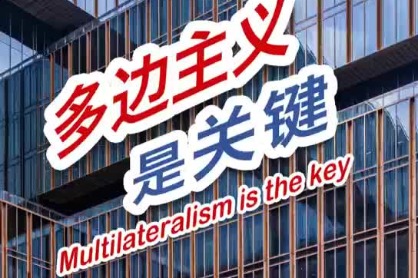'De-risking' not in the interest of EU


The European Summit to be held in the Council of the European Union buildings in Brussels on Thursday and Friday has on its agenda the Russia-Ukraine conflict, the economy, security and defense, migration, and a strategic discussion on China. This suggests the EU has failed to make any substantial changes in its policy toward China as "partner, competitor and systemic rival". In fact, a fierce debate is going on within the EU on its China policy.
At a time when the global economy is yet to overcome the impacts of the COVID-19 pandemic and is struggling to deal with the spillover effects of the Russia-Ukraine conflict, the United States and some other Western powers have intensified their efforts to demonize China. Consequently, Europe's perception of China has become increasingly negative.
Communication and interaction between China and the EU have diminished over the past three years due to the pandemic, while the Ukraine crisis has made the EU even more prejudiced against China and the US narrative of "democracy versus authoritarianism" has gained traction in Europe. To eliminate the EU's biases against China and ensure EU leaders and media see China for what it is — the world's second-largest economy ready to work with rest world for common good — we need enlightened Chinese and European leadership.
China has always seen the EU as a partner. Beijing believes that cooperation with the EU embodies the characteristics of peace, growth, reform, and civilizational partnership. China does not see itself as a rival to the EU; instead, it sees the EU as a pragmatic partner for cooperation.
China hopes the EU will develop a correct understanding of China rather than blindly following the US' policies of inciting camp confrontation, indulging zero-sum games, politicizing East-West relations, displaying Cold War mentality, building exclusive cliques, and weaponizing economic and trade relations while securitizing practical cooperation.
Attempts are even being made to decouple the EU from China in high-tech and cultural fields, albeit using a business term "de-risking" to do so. Such is the influence of the US foreign policy on some high-level decision-makers in the EU that they have become amplifiers and mouthpieces of the US, further accelerating the divisions within the EU.
Yet there are still voices in the EU that stress the importance of the bloc maintaining strategic autonomy and pursuing its own interests rather than blindly following the US in confronting China. Rational voices continue to call for a pragmatic approach to cooperation with China.
Yet "de-risking" from and avoiding being "over-dependent" on China have become buzzwords in the West, while policies specifically targeting China are becoming the norm. Some Western countries have already implemented "de-risking" policies.
The "de-risking" from China proposal was put forward by European Commission President Ursula von der Leyen in March, following which some diplomats from Germany and France have also started using the term, with the US actively promoting this policy. In May, the G7 Summit in Hiroshima, Japan, officially incorporated "de-risking" from China into the joint communique, emphasizing the need to "de-risk" rather than decouple.
The highly anticipated German national security strategy was unveiled earlier this month, which showed Germany still defines China as a "partner, competitor, and systemic rival". German Chancellor Olaf?Scholz emphasized that Germany's goal is not to decouple from China, but to minimize risks. According to the strategy, elements of rivalry and competition have increased in recent years, yet China remains a partner, without which many of the most pressing global challenges cannot be solved.
On June 20, the EU released its European Economic Security Strategy which proposed several measures, including preparing a list of technologies critical to economic security and assessing the risks they face, fully implementing the EU's export control regulations on dual use items, reviewing regulations on screening foreign direct investments, and conducting joint research with EU member states on security risks associated with exports and investments.
The policies of the EU's major economies often indicate the overall direction of the EU's China policy will take. And since China lifted the COVID-19 prevention and control measures early this year, exchanges between China and Europe have not only gradually resumed but also French President Emmanuel Macron and German Chancellor Scholz have visited China in a bid to improve Sino-French and Sino-German relations as well as China-EU ties.
Besides, Premier Li Qiang's recent visit to Germany and France enhanced Sino-German and Sino-French understanding and helped to gain an insight into the EU countries' policy directions. While reiterating that Germany does not seek decoupling, Scholz said he would closely monitor the risks involved in cooperation with China. Macron, too, said that France would not choose to decouple from China, as it does not serve French or European interests. This shows that some EU countries insist on pursuing their own path rather than becoming "vassal" states of the US.
As President Xi Jinping has emphasized, to develop relations with China, Europe needs to first have a correct understanding of the country and adhere to pragmatic cooperation and mutual benefit, because China is not a risk, but an opportunity for Europe.
Also, Premier Li, during his visits to Germany and France, stressed that China will sincerely take measures to improve mutual trust and dispel doubts, as its goal is to pursue development and maintain peace.
In Germany, Li met with leaders of companies such as Siemens, Volkswagen, Bosch and BMW. And while highlighting the importance of interdependence in trade and the global economy, he said that lack of cooperation is the biggest risk, and lack of development is the biggest insecurity.
At Summer Davos on Tuesday he again warned against overstretching the concept of the so-called "de-risking" or turning it into a political or ideological tool.
However, the EU's concerns over risks cannot be dispelled in a short period of time. It will require long-term cooperation to eliminate internal barriers. Therefore, China should maintain strategic patience, continue communication, and use pragmatic cooperation to ease Western doubts.
The author is deputy director of the Institute of European Studies at the Chinese Academy of Social Sciences.
The views don't necessarily reflect those of China Daily.
































